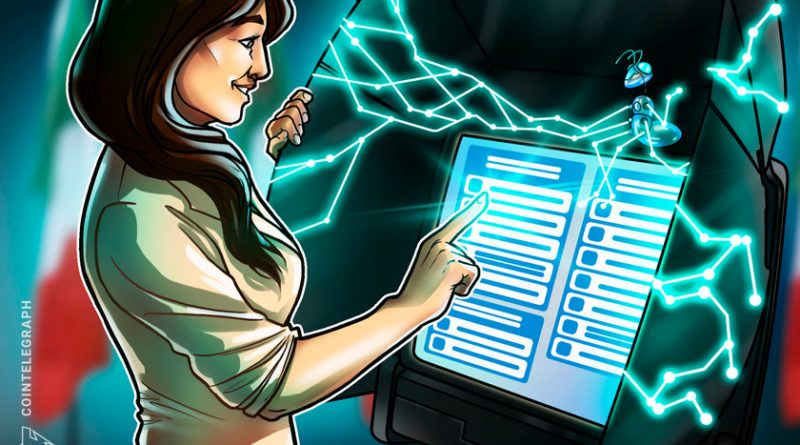Can blockchain technology make online voting reliable?
Blockchain could possibly help verify voter registration and audit results.
The United States Presidential elections on Nov. 3 were contentious to begin with, but unfounded and inaccurate accusations of electoral fraud from the defeated President Trump cast a pall over the whole procedure. Daniel Hardman, chief architect and chief information security officer at self-sovereign identity solution Evernym, thinks blockchain might help voting in general going forward.
“Basically, blockchain can provide a way for voters to be reliably and securely registered to vote, and then when votes are cast, blockchain can be a mechanism for proving that somebody has the right to vote, based on their prior registration,” Hardman told Cointelegraph. “Blockchain can provide some features that would help with auditing a vote in an election,” he added.
Republicans have been hesitant to accept a Biden win, despite the electoral college verifying the results earlier in December. Rationale ranged from accusations of faulty or manipulated voting machines to allegations of falsified ballots appearing en masse at critical voting sites. None of these accusations, however, have stood up in court.
“The recent stuff that we’ve seen with election challenges in Pennsylvania and Arizona and so forth — there are certain features of blockchain that would have made it possible to do more robust auditing,” Hardman said. “You’d basically be able to lay to rest any concerns about tampering and things like that.”
With public blockchains, such as Bitcoin’s (BTC) for example, every transaction is recorded on an immutable public ledger, making audits more foolproof and transparent than centralized or paper-based processes. Applying such technology to voting could achieve similar results for votes.
Although the model appears transparent and unchangeable, how would authorities know if votes came from citizens who only voted one time? “What you want is what’s called end-to-end verification,” Hardman explained. “On the one side, the front side of it is the registration part,” he said, adding:
“You need to know that a person can only register one time and that means that when somebody comes in to register you do the things that you would do in a physical election mechanism today, which is — you check the driver’s license, you see if their picture matches, their signature matches, all that kind of stuff.”
Then, under the hood, the technology ensures each person only a single vote. “On the backend, you prove that for any given registration, you can cast exactly one vote,” Hardman said.
A vastly complex topic calling for varied solutions based on differing threat factors, a blockchain-involved voting system might include specific components for preventing voter fraud and malware, such as biometric-based voter identification. “If you know that, ya know, John Smith from 123 Main Street in Pennsylvania has a particular fingerprint, then it’s pretty hard for somebody else to cast a vote on his behalf,” Hardman explained.
That said, what then stops governments and companies from taking advantage of such personal information for tracking and other usages? Hardman explained China and its COVID prevention measures as an example of privacy infringement. The country has tracked its peoples’ temperatures, matched with their identities and locations, he explained.
“In the case of elections, what you’d like is to separate those two questions,” Hardman said. “The question — is the party that’s trying to cast a vote authorized to do so because they’ve been prior registered in the system — is one question,” he noted. “The question ‘who is this person,’ is a different question,” he explained, adding:
“There are parts of an election where you might want to ask both questions, but there are other parts where you don’t need to ask both, and if you separate those, then you can prevent the government from doing that — from having kind of an apocalyptic surveillance state that knows which vote you cast and when you cast it and stuff like that.”
A key to the problem? A blockchain technology called zero-knowledge proofs, according to Hardman. Zero-knowledge proofs essentially verify a person’s identity without actually revealing their private data. “You ask somebody at registration time to strongly identify, you know, who they are, where they live and so forth, but at the time they cast their vote, what you ask them is to prove that they have the privilege of casting the vote without disclosing who they are,” Hardman explained. “You further ask them to prove that their vote has not already been tracked in the system […] which guarantees that you can’t vote twice.”
Over the past few years, blockchain has gained popularity for its usefulness in a number of mainstream processes, such as supply chain activities.




